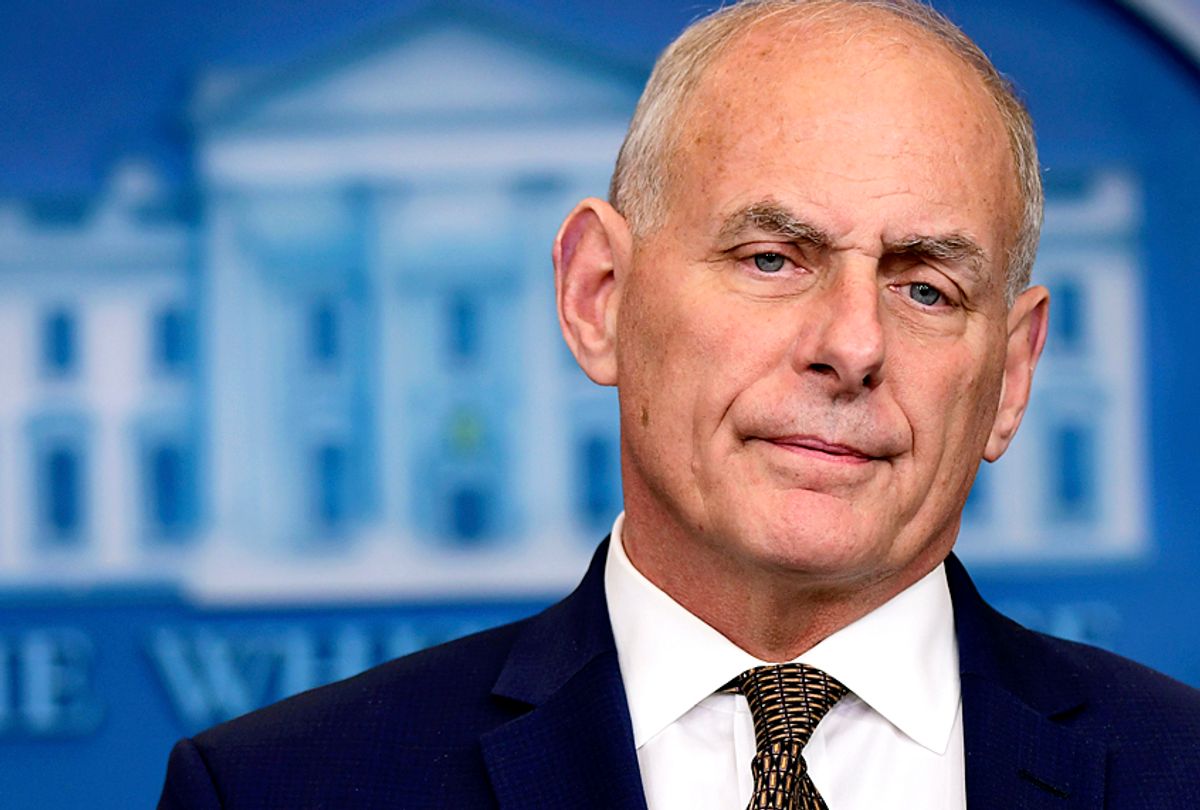In the wake of the domestic violence scandal of former staff secretary Rob Porter, White House Chief of Staff John Kelly has found himself increasingly isolated in the West Wing, and left holding the blame for the Trump administration's latest moral breakdown and ever-changing timeline of events.
The White House held an off-the-record meeting with Porter, in the hours after the Daily Mail ran a story last Tuesday, that alleged Porter had physically and emotionally abused his two ex-wives, which included a picture of his first ex-wife with a black eye. That meeting, first reported by Politico, has not been known publicly until now and featured a journalist each from The New York Times, Axios, The Washington Post and The Wall Street Journal.
This revelation is a stark contrast with Kelly's version of the events — that Porter was "gone" 40 minutes after he had been briefed on the allegations. The White House has not commented on the off-the-record meeting, but Porter also took questions from the reporters, and two officials in the White House told Politico the conflicting narratives exemplified how Kelly had been left to bear the blame.
None of this, however, changes the fact that Kelly was aware Porter had been unable to obtain security clearance because his background check still hadn't cleared by the FBI.
"My experience is that interim access typically is not extended beyond nine months at most. That isn’t to say it can’t be longer, but for rank and file officials it usually is not permitted," Bradley Moss, an attorney who specializes in national security and clearance law told Politico. "If the investigation has taken that long, and they still haven’t favorably adjudicated the person’s clearance, it typically means red flags have shown up in the vetting."
The FBI does not determine if someone is approved for clearance or not, "it simply delivers its findings to the White House, which has an office that itself determines whether to grant permanent clearances to its appointees, according to officials and lawyers familiar with the process," Politico reported.
But White House Press Secretary Sarah Huckabee Sanders didn't seem to acknowledge that was the case, during Monday's press briefing, and instead suggested it's the responsibility of the other agencies to amend their processes.
"Look, this is a process that doesn’t operate within the White House. It’s handled by our law enforcement and intelligence community. And we support that process. It’s the same process that has been used for decades in previous administrations, and we’re relying on that process at this point," she said. "I do think that it’s up to those same law enforcement and intelligence agencies to determine if changes need to be made to their process."
She also attempted to clarify the timeline and insisted "that we had learned of this situation involving Rob Porter last Tuesday evening, and within 24 hours, his resignation had been accepted and announced. We announced a transition was going to happen, and within hours, it did."
Trump's positions in public vs. private have so far been polar opposites. In private he has expressed that Porter is "sick," but he has offered multiple public defenses of him and has not said anything of the alleged victims, and some Republicans have at least taken notice.

Shares